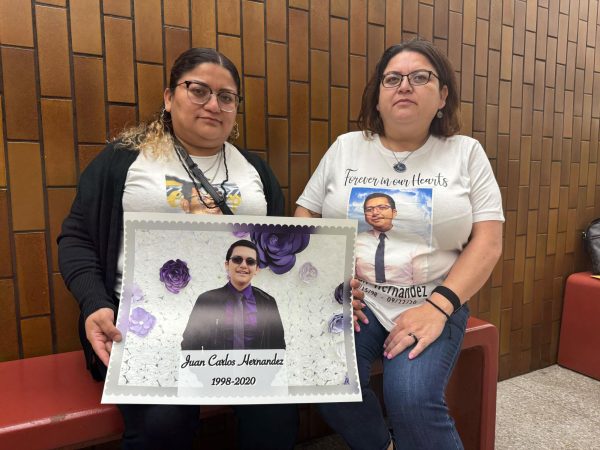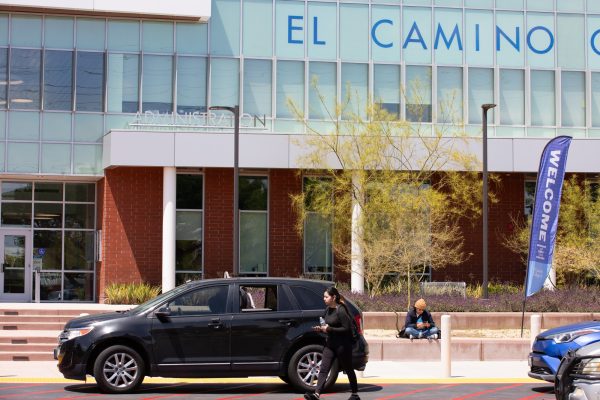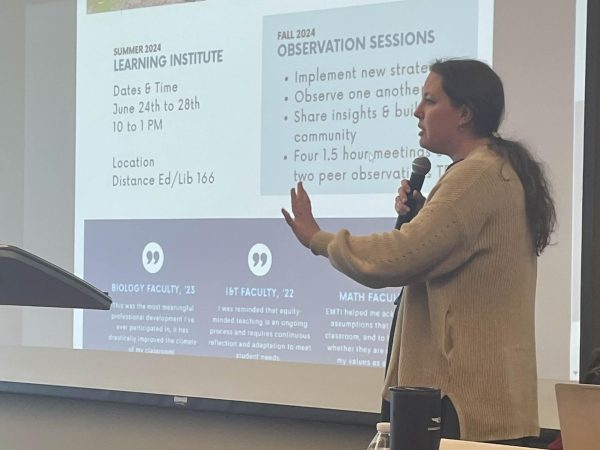Understanding the Jeanne Clery Act
The yearly El Camino College District Crime Statistics, released by the ECC Police Department in accordance with the Jeanne Clery Act, revealed a rise in drug abuse and weapon violation arrests.
Drug abuse arrests on campus increased from 10 to 23 while weapon violations, rose to 8: there were 0 weapon violations in 2015 and 2016, according to the EC Crime Statistics.
El Camino College Chief of Police Michael Trevis said he believes the rising statistics is largely due to the homeless encampment in the Dominguez Channel because EC is a community open to the public.
“It’s non-students, people that don’t go to school here but they’re walking through our campus at all hours of the day or night,” Trevis said. “Homeless people from the channel coming over here, our officers are stopping them and they’re finding drugs and/or knives; nobody had guns.”
Trevis added that 19 of the drug abuse violations on campus arrests were non-students while 4 were students.
Trevis said that many of the arrests happen when the campus is closed, making it easier to identify suspicious activity.
But that does not mean most of the crime is happening at night.
“So, 7 of them were arrested from midnight to 6 in the morning, 13 were arrested from 6 in the morning to 9 at night, that means they’re around here during the day when the sun is out,” Trevis said.
Trevis said that the drugs they have found have been mainly in small quantities.
“It’s a small quantity, it’s user stuff, none of these guys are selling, they’re users,” Trevis said.
While the homeless encampment is not selling or distributing, Trevis said that the popular drug being found is methamphetamine.
“It’s been going on for a long, long time. In my day, it was LSD, it was a big popular thing. Today it’s meth, but worst than meth, in my opinion, and meth is bad, it’s real bad and we haven’t encountered it yet, I hope we never do, is this fentanyl, that is bad, bad stuff,” Trevis said.
As for the weapons, Trevis said that the homeless encampment is also responsible for the increase in violations on campus.
“It’s them, they’re homeless and I can’t blame them, they’re trying to protect themselves, but you can’t carry a knife on a college campus,” Trevis said. “These people, in my opinion, are giving our institution a bad rep because people look at this stuff.”
Despite the rise in drug abuse and weapon violations, Trevis said the statistics are not always a fair depiction of EC, emphasizing that students at EC are “law-abiding citizens.”.
“They know their behavior reflects the institution’s reputation,” Trevis said. “It’s these non-students that are doing these kinds of stuff.”
EC Director of Public Information and Government Relations Marc Stevens said that this policy “acts in terms of stewardship for people in this institution.”
“Given that it thinks in terms of people, not the campus,” Stevens added.
Trevis said the Clery Act was created in the late 80’s, early 90’s after Jeanne Clery was sexually assaulted and murdered by another student at Lehigh University in Pennsylvania.
“During the civil litigation of that thing, the family found out that there had been other crimes occurring at that college and it wasn’t publicized, nobody knew,” Trevis said.
Trevis said that Clery’s parents thought that if these crimes would have been publicized before, then they would not have let their daughter attend that college and none of those crimes committed against her would have occurred.
In 2018, the Clery Act continues to be updated to improve safety and awareness on college campuses.
“We put a booklet out on crime prevention, things to do, timely warnings…dating violence, stalking, just a lot of different things that it talks about and not just stats,” Trevis said.
Trevis said that the statistics must be submitted every year to the Department of Education.
“If the Department of Education finds that a college withheld information on purpose, they can fine that college up to something like $45,000 per violation,” Trevis said.










